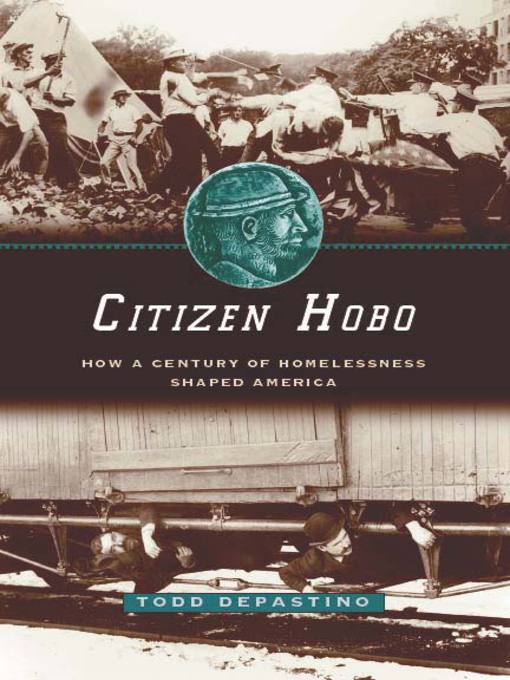In the years following the Civil War, a veritable army of homeless men swept across America's "wageworkers' frontier" and forged a beguiling and bedeviling counterculture known as "hobohemia." Celebrating unfettered masculinity and jealously guarding the American road as the preserve of white manhood, hoboes took command of downtown districts and swaggered onto center stage of the new urban culture. Less obviously, perhaps, they also staked their own claims on the American polity, claims that would in fact transform the very entitlements of American citizenship. In this eye-opening work of American history, Todd DePastino tells the epic story of hobohemia's rise and fall, and crafts a stunning new interpretation of the "American century" in the process. Drawing on sources ranging from diaries, letters, and police reports to movies and memoirs, Citizen Hobo breathes life into the largely forgotten world of the road, but it also, crucially, shows how the hobo army so haunted the American body politic that it prompted the creation of an entirely new social order and political economy. DePastino shows how hoboes—with their reputation as dangers to civilization, sexual savages, and professional idlers—became a cultural and political force, influencing the creation of welfare state measures, the promotion of mass consumption, and the suburbanization of America. Citizen Hobo's sweeping retelling of American nationhood in light of enduring struggles over "home" does more than chart the change from "homelessness" to "houselessness." In its breadth and scope, the book offers nothing less than an essential new context for thinking about Americans' struggles against inequality and alienation.
-
Creators
-
Publisher
-
Release date
May 11, 2010 -
Formats
-
Kindle Book
-
OverDrive Read
- ISBN: 9780226143804
-
PDF ebook
- ISBN: 9780226143804
- File size: 4194 KB
-
-
Languages
- English
-
Reviews
-
Library Journal
October 1, 2003
In this detailed examination of the homeless in America from the late 19th to the late 20th centuries, DePastino, an independent scholar, focuses on the image of the hobo and how it has changed throughout time. While rootless individuals have existed previous to that time frame, the author opens his study with the economic depressions of the 1870s. Press reports and intellectuals then labeled the hobos-large numbers of unemployed white men moving from place to place in search of work or food-a threat to American social order. The International Workers of the World and other radical political reformers saw them as tools to bring about economic and social change. Other intellectuals romanticized hobo life as a vital alternative to the increasingly settled nature of industrialized America. However, American society tried to overlook homelessness from World War II until its increase in the 1980s and 1990s, when it was no longer a romantic lifestyle for roving bands of white males. DePastino bases his research on newspapers, periodicals, letters, archive sources, government documents, and secondary sources. In this academic but readable study, his focus nicely completes Kenneth L. Kusmer's Down and Out, On the Road: The Homeless in American Society and is recommended for all libraries.-Stephen L. Hupp, West Virginia Univ. ParkersburgCopyright 2003 Library Journal, LLC Used with permission.
-
subjects
Languages
- English
Loading
Why is availability limited?
×Availability can change throughout the month based on the library's budget. You can still place a hold on the title, and your hold will be automatically filled as soon as the title is available again.
The Kindle Book format for this title is not supported on:
×- - Kindle 1
- - Kindle 2
- - Kindle 4
- - Kindle 5
- - Kindle 7
- - Kindle DX
- - Kindle Keyboard
- - Kindle Paperwhite
- - Kindle Touch
- - Kindle Voyage
Read-along ebook
×The OverDrive Read format of this ebook has professional narration that plays while you read in your browser. Learn more here.

